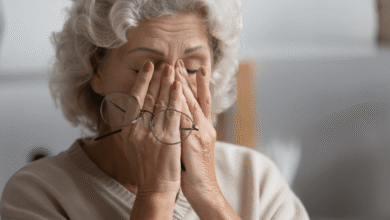Benefits Of Intensive Outpatient Treatment

IOP, or intensive outpatient therapy, is a type of addiction treatment that offers a less constrained and more flexible choice compared to residential or inpatient treatment programs. IOP entails scheduled counseling and therapy sessions held in a clinical setting, enabling patients to continue living at home and going about their everyday lives while receiving the care they require. In this blog we will discuss the benefits of intensive outpatient treatment for addiction and mental health disorders will be discussed in this blog post.
Intensive outpatient treatment: What is it?
A level of care between standard outpatient services and inpatient or residential therapy is known as intensive outpatient treatment. Patients attend routine counseling and therapy sessions for several hours each, usually three to five times each week. Treatment programs are different in length but usually take between 6 to 12 weeks.
IOP programs are made to offer comprehensive and research-based care to people who are dealing with mental health or addiction issues. By addressing the underlying causes of addiction and equipping people with the tools and skills they need to deal with life’s obstacles, IOP aims to help people achieve and sustain long-term recovery.
Benefits of Intensive Outpatient Treatment
Benefits of intensive outpatient treatment include:- Flexibility
IOP’s adaptability is one of its main advantages. Patients can receive intensive care while still living at home and going about their regular lives. This enables people to continue with their work, studies, or family obligations while still getting the assistance they require to recover from addiction or mental health issues.
- Structured Support
IOP programs offer structured assistance which is one of the main benefits of intensive outpatient treatment. IOP is catered to a person’s particular requirements. Patients get access to support groups and other services that can help them stay on track with their recovery goals in addition to receiving individual counseling, group therapy, and family therapy sessions.
- Evidence-Based Treatment
IOP programs employ evidence-based therapeutic approaches that have been successfully used to address addiction and mental health issues. Among these are motivational interviewing, dialectical behavior therapy, and cognitive-behavioral therapy. The adoption of treatments that are supported by evidence-based research guarantees that patients get the best care possible.
- Cost-Effective
IOPs are frequently more affordable than residential or inpatient treatment programs. IOP is typically less expensive than other forms of treatment because individuals do not have to pay for lodging and food. IOP programs are also frequently covered by insurance providers, making them more available to people who might not otherwise be able to afford other types of treatment.
- Continued Support
After therapy is over, intensive outpatient programs frequently offer ongoing assistance. This may entail continuing counseling and therapy, as well as having access to support networks and other tools that can assist people in keeping up their long-term recovery.

Conclusion
Those battling addiction or mental health disorders have flexible and successful treatment options available to them in intensive outpatient programs. IOP gives people the tools and skills they need to reach and maintain long-term recovery through its evidence-based treatment modalities, organized support, and economical approach. Investigate the benefits of intensive outpatient treatment if you or someone you love is dealing with addiction or a mental health condition.
FAQs
Although IOP programs come in a variety of lengths, they commonly endure 6 to 12 weeks. The duration of treatment is determined by the demands of the patient and their level of improvement.
IOP programs employ a range of evidence-based therapeutic techniques, such as dialectical behavior therapy, motivational interviewing, and cognitive-behavioral therapy.
Absolutely, research has proven that IOP is a successful treatment option for people with addiction or mental health issues. IOP is just as successful as an inpatient or residential treatment program, and for certain people, it may even have superior long-term outcomes.
What happens after IOP treatment is completed?
Individuals may continue to receive counseling and therapy after finishing IOP treatment, as well as access to support groups and other tools that might help them sustain their recovery. To guarantee long-term success in recovery, it is crucial that people continue to participate in aftercare programs.
What types of addiction and mental health disorders can be treated with IOP?
IOP programs can be used to address a variety of mental health and addiction issues, including bipolar illness, alcohol and drug addiction, depression, anxiety disorders, and post-traumatic stress disorder (PTSD), among others.











